Do you know how to stop trading your time for money and start creating passive income in 2023? Imagine with me, that your workday began with the usual routine, but halfway through your morning, you received the news you’d been laid off, or even better yet … you receive an after hours email stating everyone in the company had to be on a mandatory call just before the markets opened for the day.
That’s what happened to me time and time again when I was in corporate America working in an industry full of buy-outs and “restructuring”. For most Americans getting laid off that means zero income starting tomorrow morning, or after your severance (if you’re lucky).
Now, let’s assume instead that during your employment, you leveraged your money. That already feels better. Doesn’t it?! You can easily start creating passive income.
The rich don’t work for money. They make their money work for them. – Robert Kiyosaki
Three Types of Income
Most people’s income is active, which means it comes from a consistent paycheck or in exchange for work they are doing for an employer or their business. But wealthy people typically earn Residual or Passive income (or both!).
Active Income
Active income is from your employer or your business in exchange for your efforts and requires activity in exchange for money. When you stop, the income stops.
Residual Income
Residual income means you receive money after the work is done. For example, every book an author sells provides residual income.
Passive Income
Passive income is earned with very little effort and continues flowing even when you aren’t working. Real estate investments are one of the most stable sources of passive income.
Remember the job loss scenario (or in my case reality)? Let’s pretend you’d built passive income, on the side, during employment.
If you were laid off or if something happened to your business, your earnings would be decreased by your monthly salary or business revenues, but you would still have income.
Financial freedom is achieved when your earned passive income supersedes your active income.
Investing in Stocks vs. Real Estate
Historically, the stock market returns about 8% annually, which means $100,000 would produce roughly $8,000 per year. That’s only $667 per month.
To replace an income of $3,000 per month, you’d need $36,000 per year, which would be 8% of $450,000.
However, with real estate, $100,000 could buy a $400,000 rental home. How?
The bank brings $300,000 to the table.
You put in 25%, the bank puts in 75%, and you earn 100% of the profits.
A $400,000 home renting for $3,600 with a mortgage of $2,100 would net you $1,500 per month. Theoretically, 2 investments of this size could replace a $3,000 monthly income.
The total rental income plus $25,000 in additional equity (based on 5% annual appreciation) equals $43,000, or 43% return in just one year. *Obviously you have to take out expenses like debt service, taxes, maintenance etc. But I am hoping you get the point of this illustration.
But I Don’t Want to Be a Landlord
The numbers look enticing, but being a landlord does not. I get it. It never has appealed to me either!
This is where, instead, you join a small team to acquire real estate together.
When investing $100,000 in real estate syndication, it’s feasible to earn $8,000 per year (8%), similar to the stock market.
However, the real opportunity lies in the sale of the asset. Syndications hold the property for about 5 years (give or take depending on the market and asset). During this time, building improvements are made, rents are increased and the land market value typically rises.
Upon the sale of this pretend asset, you receive $60,000 in profit plus the passive income of $8,000 per year (totaling $40,000), which equals $100,000. This definitely looks better to me than the stock market option, especially lately. And the cherry on top is that no one is calling you because a toilet is clogged or a rent payment is late.
Again if while employed or even while working for yourself, you’re able to create passive income, you’ll be less stressed when/is facing a layoff or a major life event whatever that may be. You may even find yourself celebrating unemployment.
I know once I retired myself from corporate America, I have never looked back. I am still building my passive income but it is snowballing and is truly one of the most magical wealth building tools I could have ever imagined and experienced. And my goal is to share passive real estate investing with as many people as I can.
**Interested in potentially becoming an investor? Sign up HERE.

